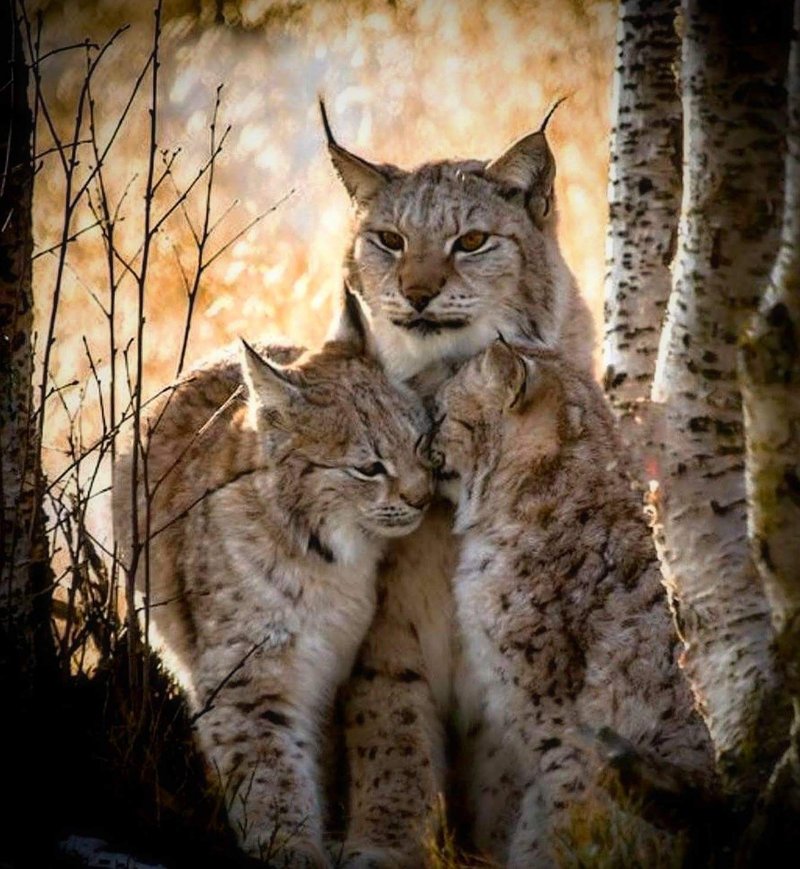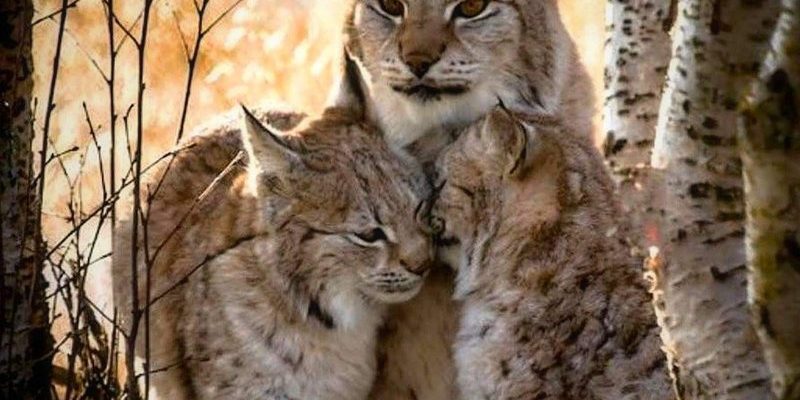
Raising young lynxes in the wild is a bit like preparing your kids for their first day of school. You want to make sure they have the skills they need to succeed, while also keeping them safe from any dangers. Lynxes, particularly the Canada lynx and the Eurasian lynx, have developed unique ways to nurture their kittens, making sure they are well-equipped for life in the wild.
Where Lynxes Make Their Homes
Before we dive into the parenting techniques of lynxes, let’s talk about where they set up “home.” These cats tend to favor dense forests, areas with plenty of cover, and places close to water sources. Think of a cozy den tucked away under a pile of rocks or nestled in a thicket—perfect for raising little ones.
Lynxes usually establish their dens in remote areas that offer protection from predators and human activity. This helps keep their kittens safe during those vulnerable early weeks. Picture it: a mother lynx choosing a spot with thick underbrush that’s almost like a natural blanket, hiding her young from view. She’ll often select a secluded spot far from trails or human disturbance, giving her younglings the best chance to grow up without too many worries.
These dens become a sanctuary as the mother prepares for the arrival of her kittens. It’s a quiet, secure space where she can feel at ease while tending to her new family.
Gestation and Birth of Lynx Kittens
Here’s the thing: bringing new life into the world isn’t a quick process for lynxes. The gestation period for a lynx lasts about 63 to 70 days. That’s quite a commitment! During this time, the female prepares her body and the den for the arrival of her kittens. She becomes more cautious and protective, knowing that new life is about to enter her world.
When the big day finally arrives, the female typically gives birth to a litter of two to four kittens. These little ones are blind and helpless at first, weighing only about a pound each. Imagine a tiny, fluffy ball of fur, completely dependent on its mother!
After giving birth, the mother lynx will stay with her kittens in the den for several weeks, nursing and keeping them warm. It’s a crucial bonding time—much like a new parent in those early days, when it’s all about feeding, cuddling, and protecting.
The Early Life of Lynx Kittens
As the kittens grow, they face many challenges, and their mother plays a big role in guiding them. From about six weeks old, they start to open their eyes and explore their surroundings. You might picture a little explorer, wandering around the den while still keeping close to mom.
At this age, the mother will start to teach her young how to hunt. She’ll bring them small prey, like rodents or birds, to help them understand what’s out there. It’s like showing your kids how to ride a bike—there’s a lot of encouragement, but they ultimately need to learn how to do it themselves. The mother demonstrates hunting techniques, showing her kittens how to stalk and pounce.
This is also when playtime becomes essential. The kittens will wrestle and chase each other, building their strength and coordination. It’s not just fun; it’s training for the real deal when they’ll need those skills to survive on their own.
Mother-Cub Bonding and Learning
Bonding between a mother lynx and her kittens is strong. She nurtures them with care, providing warmth and protection. You could say it’s a dance of trust and learning. When the kittens are about two months old, they start venturing a little farther from their den. They explore the world around them while still returning to mom for safety.
Here’s an interesting aspect: mother lynxes are known for their patience. If one of the kittens struggles to keep up, she won’t rush them. Instead, she’ll often pause and wait, allowing them to learn at their own pace. It’s like a parent cheering you on as you take your first steps—encouraging but never pushing too hard.
During this time, the mother feeds them high-protein meals to support their growth. It’s essential for kittens to develop physical strength and hunting skills, setting them up for a successful life once they leave the den.
Independence: When Lynx Kittens Leave the Nest
Around six months of age, lynx kittens are nearly ready to start life on their own. This is a big milestone, much like a graduation ceremony. They’ve learned how to hunt, what to avoid, and how to navigate their environment.
Before they head out, the mother lynx will still keep an eye on them. She watches as they practice their hunting skills, sometimes even joining in on the fun. Eventually, she’ll encourage them to venture further away, signaling it’s time to embrace independence.
Once they leave the den, the young lynxes will typically stay close to their mother for a while as they learn to navigate their territories. However, as they gain confidence, they’ll start to branch out. It’s an exciting—and somewhat bittersweet—transition.
Challenges in Raising Lynx Kittens
Raising lynx kittens isn’t all sunshine and playtime. Mother lynxes face several challenges that can complicate the process. Food availability is a significant factor. If prey is scarce, it might be tough for her to provide enough nourishment for her growing kittens.
Additionally, the presence of predators poses a constant threat. Mother lynxes must remain alert to keep their little ones safe. Imagine a protective parent at a playground, always keeping an eye out for any potential dangers.
Weather can also be tricky. Harsh conditions, especially in winter, can make it harder for the mother to hunt. She often has to deal with snow, ice, and cold temperatures, which can impact her ability to care for her kittens effectively.
Raising young lynxes in the wild is a blend of instinct, skill, and a bit of luck. From selecting the perfect den to teaching hunting skills, mother lynxes take their jobs very seriously. They invest time and energy into ensuring their kittens are prepared for the challenges of the wild.
By the time their young are ready to leave the nest, these little lynxes have learned essential survival skills. The bond formed during this nurturing phase is remarkable, demonstrating the beauty of nature and motherhood.
So next time you think about lynxes, remember their incredible journey as parents. It’s a story of survival, dedication, and the timeless cycle of life in the wild.

